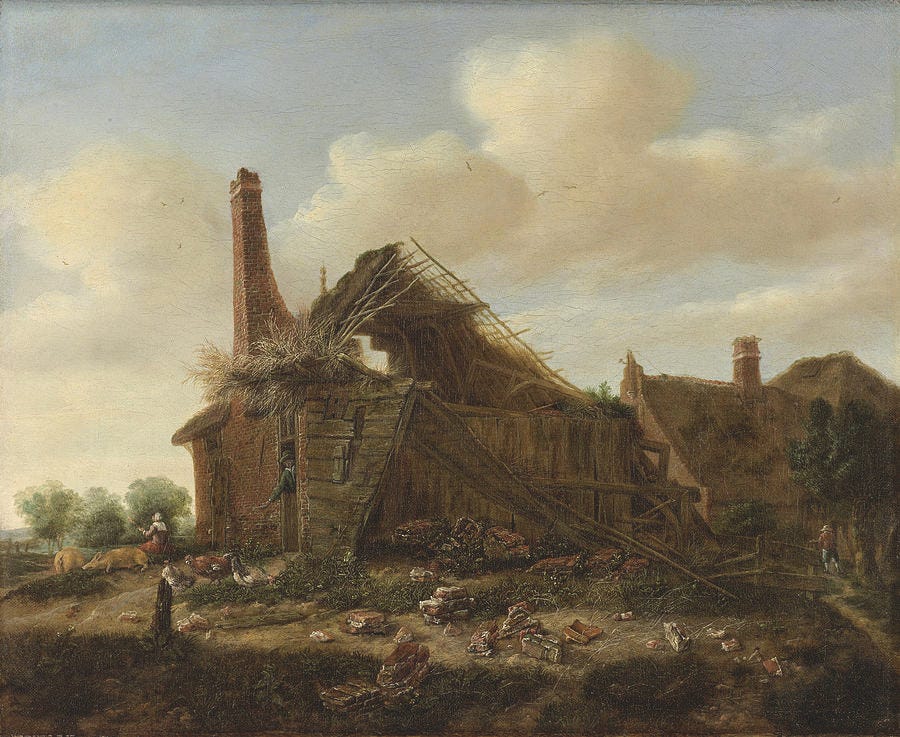In less than one week you will be halfway between the winter solstice and the vernal equinox. You will have the same amount of daylight you did at Halloween. January ends, the days grow longer, and now you have one less month to achieve your resolutions, to plan your moves, to bring something into being. To conceive. That is ultimately what this time of year embodies: conception. You are emerging from winter’s grim grasp but are not quite ready to declare the arrival of spring, of new life. Ask any shepherd however and they will tell you their ewes are pregnant now and the lambing begins soon. The ancient Celts called this time of year Imbolc, a name thought to derive from the Old Irish word meaning “in the belly.” While Imbolc may be unfamiliar to many, February 1 is likely known to them as St. Brigid’s Day. This day celebrates the saint who—some argue—intertwined in history with the pre-Christian Celtic goddess of the same name through a process called syncretism where, simply put, the Church absorbs a folk belief and sanctifies it, making it its own. This blending of traditions means that many of the attributes and legends of the goddess Brigid were incorporated into the veneration of the saint. The goddess was associated with fertility, healing, poetry, smithcraft, and these aspects have carried over into the saint's celebrations, making Imbolc or St. Brigid's Day a time to honor either the Christian saint or the ancient goddess depending on your inclination. Whether you call February 1 St. Brigid’s Day or Imbolc, whether you worship goddesses or venerate saints—whatever you believe—one thing remains certain: this is the time of year for creating and the time for excuses is slipping away.

The complaint that the modern world is full of distractions has been covered ad nauseum. How much virtual ink has been spilled decrying the evils of our various alerts and notifications? Enough, I’d wager. A more diabolical evil we do not call out nearly as loudly are our own excuses. We look outside to a hanging shingle, a warped shutter, a sagging post, and declare we will repair them when it is warmer or when we have more daylight after work. We look to the unstarted or half finished projects in the workshop or garage and make the same bold but hollow declarations. We could do it now though. We should. We should, but we don’t. Instead, we let our excuses grow wild like brambles and briars, choking out any chance of real progress or creation. The modern world makes this so easy not through the ease of addictive entertainment, but the ease of addictive victimization. Know it or not, you are constantly bombarded with sad, seductive whispers. Why fix the shutter when everything is already so stacked against you? Why create anything of substance when the sins of all those who came before you are so insurmountable? Why repair, build, or grow when the world is already ruined? Didn’t you hear? It’s over. You don’t really read about this sort of self-destructive autonomous browbeating. Instead, pick up any publication from the last two decades and you’ll find an article decrying the evils of constant distractions. The problem is not just the noise around us though; it is the noise within us—the constant rationalizing of why now isn’t the right time, of why we just can’t do it, of why we will fail.
This whining, this rationalizing, these excuses are not a moral failing however. They are the product of luxury, of a lack of urgent needs. If you do not sow or harvest, you can go to the store. If you do not repair, you can buy new. If you are reading this, it is highly likely your society has allowed you a certain level of insurance against failure. For the old Celts however, Imbolc was a time of dire preparation. It marked the end of waiting and the beginning of deliberate action. Procrastination would have meant hunger or worse. It is easy to place a mantel of moral superiority on our forebears and ancestors, but the truth is they simply could not look to the harshness of the season for excuses; they needed to meet its challenges or perish. If the shepherds on the hills of pre-modern Ireland waited for warmer weather to lamb their ewes, their flocks would fail. If the smiths delayed their craft, the critical work their hardware enabled would go unmet. If the midwife stayed in her dwelling due to foul weather, there would be death instead of birth. There was no waiting for convenience in the pre-modern world; necessity demanded action. You might not be a shepherd, smith, or midwife, but the lesson stands: the longer we wait, the harder it becomes to act. Excuses lead to failures and those failures simply compound until one day you find yourself kicking rocks while mumbling something about how it will be different next year.
So how do you avoid this spiral? You begin by reflecting on what you want to sow this year. You are running out of time to make this decision, so you may need to prioritize what you want to bring into this world. You will need too, to cut out distractions. This does not mean silencing your phone or turning off your TV; you need to not become distracted by fake goals. These are the goals and projects we convince ourselves are valuable, real, or meaningful when they may instead only slake our own vanity. You’ll know these projects are traps when they are conceived in a state too abstract or nebulous. Statements like “This year I am going to really focus on building empathy and community” or “I am going to become a champion of sustainable practices” may sound virtuous and meaningful, but without a metric by which you measure your progress, they quickly evaporate like mist from snowmelt in a field. Do not delude yourself; you need to do something real. Make, build, grow something tangible. In a world where it is so easy to lose ourselves in platitudes, vague notions, and good intentions, you need to cut through the mist with something real, something you can actually see and hold. It is so easy to convince ourselves that we are making progress on some metaphysical goal. It is harder, but better, to come to terms with what we have actually wrought.
As February approaches and the growing light burns away the shadows of your dormancy, take stock of what you intend to sow this year, what you intend to bring into this world. We can cling to our excuses, letting them lull us into inertia, we can allow the vagueries of feel-good goals seduce us into accomplishing nothing, or we can resolve to actually make something. Something real, something true, something good.







What a firm but lovely wake-up. This realization is compelling - "There was no waiting for convenience in the pre-modern world; necessity demanded action. "
Fake goals often garner praise giving a quick hit of dopamine without any actual accomplishment. As out of place as corporate speak may be in talk of doing something real, we need to ensure our goals are SMART. Specific, Measurable, Actionable, Relevant, and Timely. If it lacks any of these things it is a fake goal.